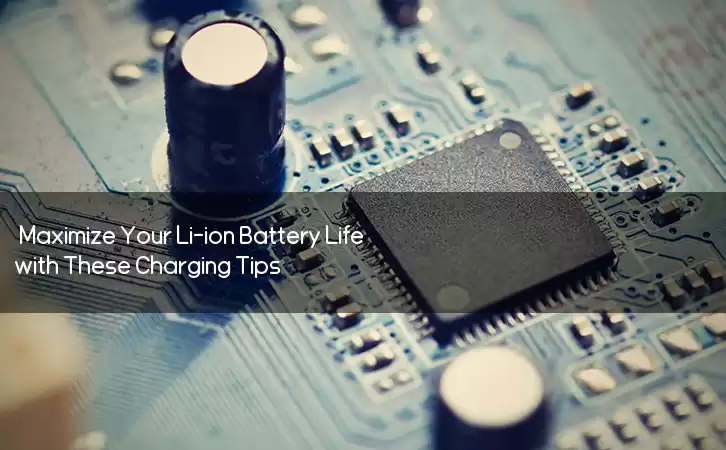Information Center
Maximize Your Li-ion Battery Life with These Charging Tips
Published:2023-07-28 20:31:44 Author:Green WCND Views:47Li-ion Battery Charger Instructions

Lithium-ion batteries have now become the preferred choice for powering our portable devices like smartphones, laptops, and power banks. These batteries have a longer life span, higher energy density, and lower self-discharge rates than other battery types. However, to ensure the longevity of your Li-ion battery, it is important to use the correct charger and follow the recommended charging instructions. Here are some tips on how to properly charge your Li-ion battery:

1. Use the right charger

Every device comes with its own charger, and it is important to use the charger that is recommended by the manufacturer. Substituting it with a different charger may result in overcharging, overheating, or even damage to the battery.
2. Check the voltage and current
Ensure that your charger has the correct charging voltage and current rating as specified by the manufacturer. The voltage and current levels differ for different devices and Li-ion battery types, so check the manual or the battery specifications to ensure that your charger is compatible.
3. Check the condition of the charger
Inspect the charger for any signs of damage or overheating before plugging it in. Damaged chargers can cause electrical shocks or damage the battery. Always use a charger with a working cable and plug that has no visible signs of damage.
4. Use the correct charging method
There are two types of Li-ion battery charging methods: trickle charging and fast charging. Trickle charging is where the charger charges the battery slowly, while fast charging is where the charger charges the battery quickly. Trickle charging is recommended for maintaining battery life, while fast charging is ideal for when you need to charge your device quickly. In general, Li-ion batteries can be charged at a rate of 0.5C (0.5 times the rated capacity of the battery) without compromising the battery’s longevity.
5. Avoid overcharging and overheating
Overcharging your Li-ion battery can damage it and can even cause it to explode. Most devices come with built-in protection circuits that prevent overcharging, but it’s still important to unplug your device once it has reached full capacity. Overheating can also cause damage to your Li-ion battery, so make sure your device is not charging in direct sunlight or on a surface that can get hot.
Conclusion
Using the correct charger and following the recommended charging instructions can help extend the life of your Li-ion battery. Always ensure your charger is in good condition and that it has the correct voltage and current rating for your device. Use the correct charging method and avoid overcharging and overheating your battery. With proper charging techniques, you can maximize the performance and lifespan of your Li-ion battery.
The battery pack is the heart of a golf cart, silently powering every acceleration and climb on the green. However, battery degradation often goes unnoticed, mu···
The battery pack is the heart of a golf cart’s power system, yet maintaining it has long been a challenge for technicians. Traditional troubleshooting methods—···
For golf course managers, ensuring smooth and efficient operations is crucial for providing a memorable experience for golfers and maintaining the reputation of···
A battery tester ensures golf course cart batteries operate efficiently and reduces downtime through the following ways:I. Precise Battery Condition DiagnosisOp···





